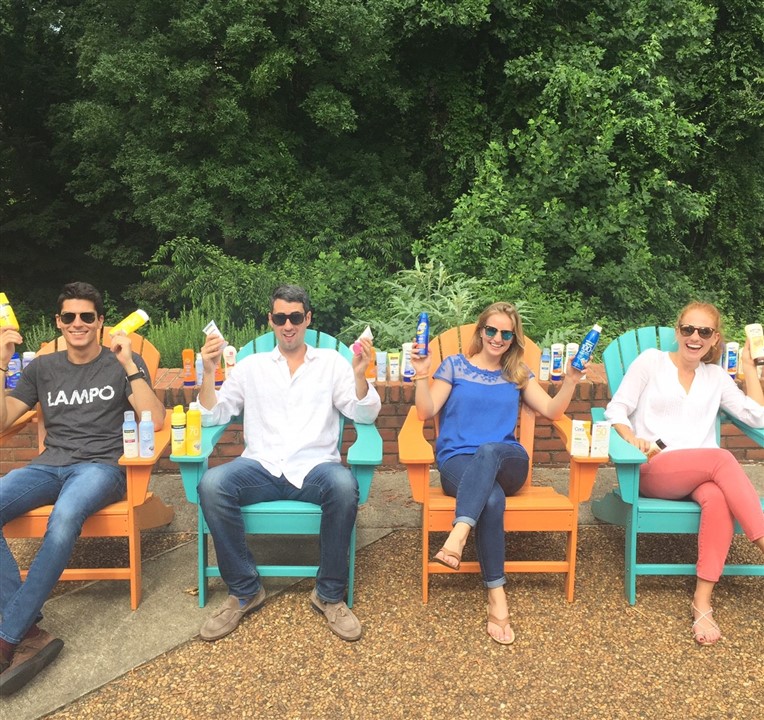Meg Greenhalgh wants your honest opinion. No, really, she does. As a serial entrepreneur and current Darden MBA student, she’s well-versed in the idea that feedback is an essential, though sometimes painful, part of growth and development. The founder of Brandefy – a platform that shows shoppers how store brand and name brand products stack up against each other utilizing honest, straightforward consumer feedback – recounts the moment that she learned to value criticism on a whole new level, just as she was fully discovering the benefits of an effectual frame of mind. “I went to an effectuation workshop with Saras (Sarasvathy) in October or November, and she just tore apart my plan of moving forward. It was the best thing that anyone could do for me. I had all these causal [rather than effectual] plans and I realized they would not have told me anything that I don’t already know.”
Helping others to discover unknown information forms the backbone of what Greenhalgh hopes to accomplish with Brandefy. After spending four years in private label consumer packaged goods, she began to realize that sometimes the generic version and the brand version of a product are exactly the same. However, that doesn’t always hold true across the board – she’s also seen instances in which the store version of a product doesn’t even come close to matching up to the brand-name model. With a product like sunscreen, for instance, buying a bad approximation to use during a hot, sunny July vacation is a mistake you certainly don’t want to make.
As someone whose entrepreneurial mindset is always firmly switched to the “on” position, Greenhalgh continued ruminating on this problem until a breakthrough moment in 2015, when she was buying a value pack of disinfectant wipes, and the price tag was a bit hard to swallow. “I saw the value pack of the store brand option next to it and wanted to give it a try,” but, at $15, it was also a relatively pricey item (and a large quantity she didn’t want to go to waste), so she needed a way to be sure that it would work well, smell good, and fit her needs before she actually took the plunge of purchasing the item. “I tried to find reviews online first [from other consumers who had tried the store brand], but I couldn’t find anything.” So Greenhalgh decided to go for it, only to get home to a pack of flimsy, untearable, and ultimately highly unsatisfying wipes. In hindsight, perhaps “value pack” was a misleading moniker. While Greenhalgh was frustrated that a consumer community to help share this kind of information wasn’t already available, she started to think perhaps she could be the one to create it.
With two ventures already under her belt by the time she entered Darden in the fall of 2016, Meg was apprehensive about the value that a traditional MBA track could bring to her. She had been surrounded by strong female entrepreneurs her whole life – her great-grandmother and mom were both proud proprietors of their own businesses – so she wondered if striking out on her own would be a better, more immediate course of action. But within two weeks of starting school last fall, she knew she was in the right place to help take the germ of her business idea and make it a potentially large-scale disruptor. She cites the highly collaborative nature of all the students she met during those first few days and, of course, the influx of constructive, specific feedback, as two hugely important facets of her Darden experience that helped convince her she had made the right decision.
Fittingly, these past experiences have filtered through into the core tenets on which Brandefy hopes to launch in the near future – the platform’s fuel will be its honest customer feedback, and she’ll continue a legacy honoring strong women by launching Brandefy with a market she knows well – female millennials. In addition to consumer reviews, Brandefy intends to also offer its own reviews encompassing ingredient analyses, the company’s own experiences with the product, and chemical analyses when necessary. Greenhalgh elaborates, “It’s pretty easy to tell when something’s an exact match [to a brand name product] or when it’s totally not the same, but we’re trying to provide value in determining the subtleties in between.”
This summer, the Brandefy team – which includes Greenhalgh, Nic Stockdale, Murat Bilginsoy, and Lili Bettolo, is embracing the effectual mindset more than ever. They credit the iLab environment and fellow cohort members as hugely beneficial to the continued development process – “there’s someone here who used to be a chemical analyst, so we’ve gotten different ideas on more affordable ways to chemically test products. These are things that I could have spent days on that someone two desks down can help me solve in five minutes.” When reflecting on the busy year she’s had, Greenhalgh recalls the lasting impact of that effectuation workshop last fall – “someone I reached out to right after that workshop is now one of my biggest advisors. [If not for the effectuation principles,] I would have waited to be more polished or to have something to show him…but the workshop made me realize you don’t wait, you just pick up the phone and see what they think.” And then be good and ready for some honest feedback.

